Earth
Sign up for our newsletter
We summarize the week's scientific breakthroughs every Thursday.
-
 Paleontology
PaleontologyWoolly mammoths’ last request: Got water?
Woolly mammoths survived on an Alaskan island thousands of years after mainland mammoths went extinct. But they died out when their lakes dried up, thanks to a warming climate and rising sea levels.
-
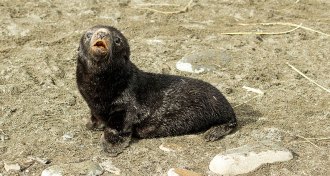 Animals
AnimalsPup kidnapping has a happy ending when a seal gets two moms
A female fur seal kidnapped another seal’s pup. But this turned out to be a positive the young seal, scientists found.
-
 Oceans
Oceans50 years ago, humans could pick the oceans clean
Scientists have long recognized that we might overfish the oceans. Despite quotas, some species are paying the price of human appetite.
-
 Earth
EarthScience finds many tricks for traveling to the past
Our editor in chief discusses what science can tell us about the past.
By Eva Emerson -
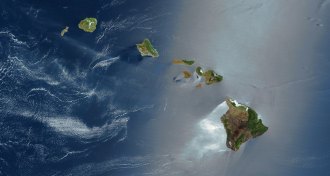 Earth
EarthNew scenario proposed for birth of Pacific Plate
The Pacific tectonic plate formed at the junction of three other plates and above of the remains of a submerged plate, geophysicists propose.
-
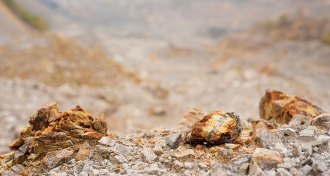 Earth
EarthIron-loving elements tell stories of Earth’s history
By studying geochemical footprints of rare elements, researchers get a glimpse of the planet’s evolution.
-
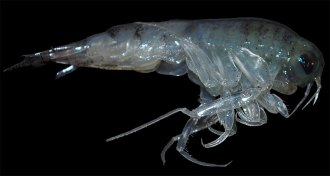 Oceans
OceansSea ice algae drive the Arctic food web
Even organisms that don’t depend on sea ice depend on sea ice algae, a new study finds. But Arctic sea ice is disappearing.
-
 Earth
EarthAncient air bubbles could revise history of Earth’s oxygen
Pockets of ancient air trapped in rock salt for around 815 million years suggest that oxygen was abundant well before the first animals appear in the fossil record.
-
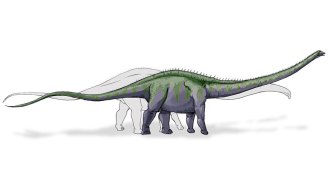 Earth
EarthHow dinosaurs hopped across an ocean
Land bridges may have once allowed dinosaurs and other animals to travel between North America and Europe around 150 million years ago, a researcher proposes.
-
 Climate
ClimatePhytoplankton’s response to climate change has its ups and downs
In a four-year experiment, the shell-building activities of a phytoplankton species underwent surprising ups and downs.
-
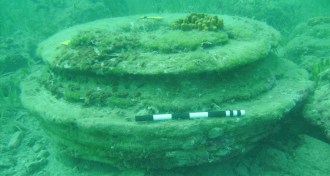 Oceans
OceansUnderwater city was built by microbes, not people
Submerged stoneworklike formations near the Greek island of Zakynthos were built by methane-munching microbes, not ancient Greeks.
-
 Animals
AnimalsLionfish invasion comes to the Mediterranean
Scientists had thought that the Mediterranean was too cold for lionfish to permanently settle there. But now they’ve found a population of the fish off Cyprus.